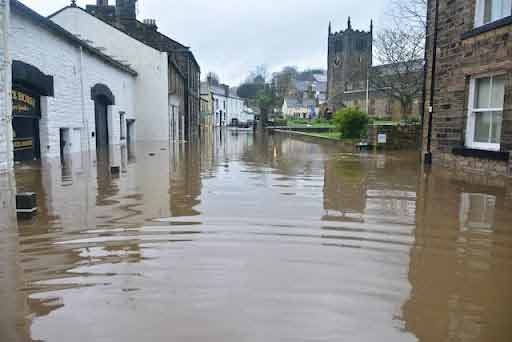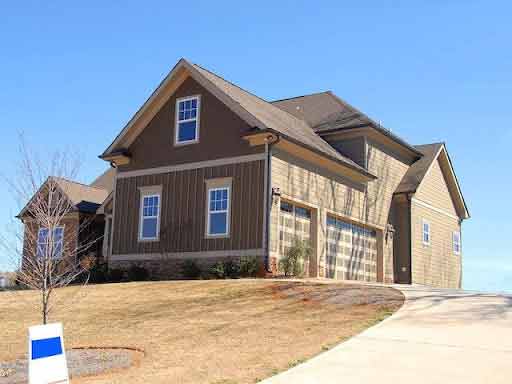
How to prevent spring floods you ask? Flooding from natural events is currently rated as the most dangerous natural disaster in the USA. Although most people tend to associate flooding with events like hurricanes, most floods result from everyday things like rain and snowmelt.
Even in the absence of extreme weather, there’s a flooding event in one part of the USA at least 8 out of 10 days every year. Many of these are flash floods, most of which happen in Spring. A third of US states face an increased risk of flooding with the onset of Spring.
Why is there a higher rate of flooding during Spring?
It is due to the following reasons: rapid snowmelt caused by quickly rising spring temperatures, saturated soils that are unable to absorb the amount of runoff from spring rains, and increasing volumes of rainfall across the entire USA over the last century.
Keyrenter Boise warns, these factors multiply the possibility that most American homes will suffer the ravages of flooding at least once a decade. How do Spring floods affect your home, why are they so dangerous, and how can you protect yourself?
Why Spring floods are so dangerous
Most Spring flooding falls under the category of flash floods. This is flooding that happens unexpectedly as a result of heavy precipitation, usually a short spell of intense rainfall. The average timeframe it takes a flash flood to develop is less than six hours.
Each year, Spring floods cause billions of dollars worth of damage. More than 40% of businesses and 20% of homes affected by them never fully recover. That is why they are viewed as the most destructive natural disaster and the number one cause of death due to weather events.
The primary danger of Spring floods lies in their sudden and violent nature. Also:
- They are highly unpredictable, and the water current is unusually strong.
- They are very deceptive; often faster flowing and deeper than they appear.
- They carry tons of debris that exponentially increase their power to do damage.
- They can wash away topsoil, heavy vehicles, roads, train tracks or even bridges.
- Flash floods will easily expose your home’s foundation, as well as damage its interior.
Is there a way to protect yourself and your home from Spring flooding?
How to prevent Spring flooding
Make your home ready before Spring arrives
Don’t wait until the first rains before you remove the debris lying in your yard or hiding in gutters. As soon as temperatures start to go up, it is time to start taking steps to make sure your home is not vulnerable to Spring floods.

Grading the landscaping around your home can help keep floodwaters away from the house.
Grade your landscaping
Water always flows from high to low ground; even flash floods follow this simple law of physics. Grading the landscaping around your home can help keep floodwaters away from the house.
Install sump pumps and maintain them
Sump pumps protect your home and below-grade portions of the house from flooding. They do this even when you are asleep. Test your sump pump at the beginning of Spring and install a battery backup sump pump system, just in case there is a power outage.
Grow a lush lawn that can absorb water
A lawn populated by plants with deep and robust root systems will help to protect your home from flooding. That is because the soil acts like a sponge, quickly soaking up water that falls on it and transporting it away from the surface.
Install a rain garden
Rain gardens are surface systems for holding water. They collect runoff from heavy rainfall and give the soil time to slowly soak up the excess water. They not only save your home from flooding but also beautify the property.

Homeowner’s insurance typically does not include damage by Spring floods. Several homeowners don’t know this until after their home is devastated by a flood.
Grow trees to stop flooding
By catching raindrops on their leaves and branches, trees reduce the amount of rainwater that gets to the soil. In the event of flooding, tree trunks also help to slow floodwaters and reduce the damage they cause. Tree roots also increase the rate at which soils absorb water.
Give the water somewhere to go
It can be as simple as removing debris from the yard, so it doesn’t end up inside the drains. It can mean not doing things that cause blockages inside storm water drains and your home’s main sewer line.
Get the right insurance coverage
Homeowner’s insurance typically does not include damage by Spring floods. Several homeowners don’t know this until after their home is devastated by a flood. Buying flood insurance will protect your home and give you peace of mind.
It is a good idea to thoroughly assess the building and determine its vulnerabilities if you want to make your home completely safe from flooding. A plumber with experience in flood control systems can reduce your home’s exposure to spring flooding by identifying the building’s weaknesses and recommending the right solutions for the problem.
If you live in an area where the homes are at a higher risk of flooding or your house has been flooded in the past, a French drain installation can help you avert future flooding incidents by designing a comprehensive flood-protection solution for your property.